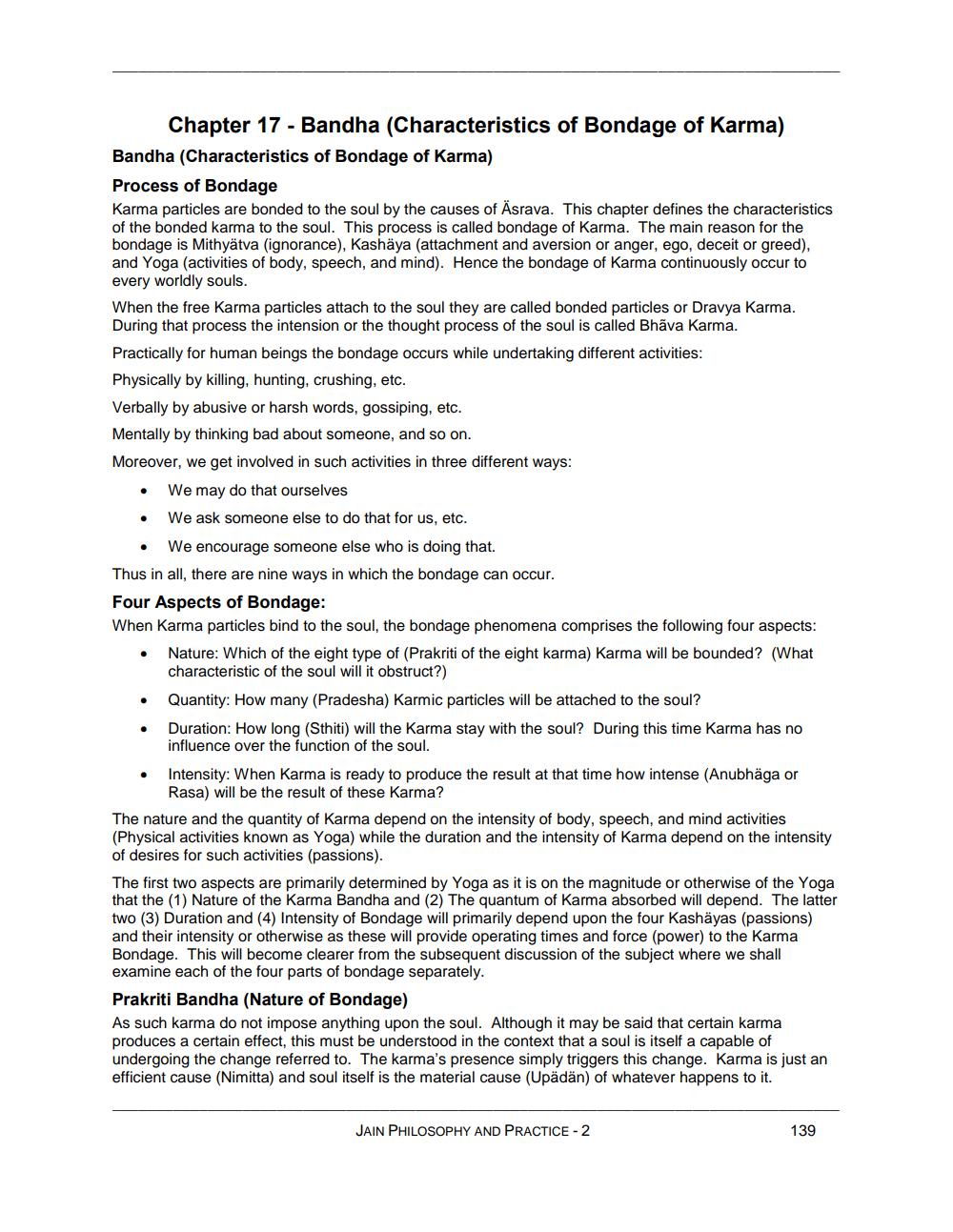________________
Chapter 17 - Bandha (Characteristics of Bondage of Karma) Bandha (Characteristics of Bondage of Karma) Process of Bondage Karma particles are bonded to the soul by the causes of Asrava. This chapter defines the characteristics of the bonded karma to the soul. This process is called bondage of Karma. The main reason for the bondage is Mithyätva (ignorance), Kashaya (attachment and aversion or anger, ego, deceit or greed), and Yoga (activities of body, speech, and mind). Hence the bondage of Karma continuously occur to every worldly souls. When the free Karma particles attach to the soul they are called bonded particles or Dravya Karma. During that process the intension or the thought process of the soul is called Bhãva Karma. Practically for human beings the bondage occurs while undertaking different activities: Physically by killing, hunting, crushing, etc. Verbally by abusive or harsh words, gossiping, etc. Mentally by thinking bad about someone, and so on. Moreover, we get involved in such activities in three different ways:
• We may do that ourselves • We ask someone else to do that for us, etc.
• We encourage someone else who is doing that. Thus in all, there are nine ways in which the bondage can occur. Four Aspects of Bondage: When Karma particles bind to the soul, the bondage phenomena comprises the following four aspects:
Nature: Which of the eight type of (Prakriti of the eight karma) Karma will be bounded? (What characteristic of the soul will it obstruct?) Quantity: How many (Pradesha) Karmic particles will be attached to the soul? Duration: How long (Sthiti) will the karma stay with the soul? During this time Karma has no influence over the function of the soul.
Intensity: When Karma is ready to produce the result at that time how intense (Anubhäga or
Rasa) will be the result of these Karma? The nature and the quantity of Karma depend on the intensity of body, speech, and mind activities (Physical activities known as Yoga) while the duration and the intensity of Karma depend on the intensity of desires for such activities (passions). The first two aspects are primarily determined by Yoga as it is on the magnitude or otherwise of the Yoga that the (1) Nature of the Karma Bandha and (2) The quantum of Karma absorbed will depend. The latter two (3) Duration and (4) Intensity of Bondage will primarily depend upon the four Kashayas (passions) and their intensity or otherwise as these will provide operating times and force (power) to the Karma Bondage. This will become clearer from the subsequent discussion of the subject where we shall examine each of the four parts of bondage separately. Prakriti Bandha (Nature of Bondage) As such karma do not impose anything upon the soul. Although it may be said that certain karma produces a certain effect, this must be understood in the context that a soul is itself a capable of undergoing the change referred to. The karma's presence simply triggers this change. Karma is just an efficient cause (Nimitta) and soul itself is the material cause (Upädän) of whatever happens to it.
JAIN PHILOSOPHY AND PRACTICE - 2
139




